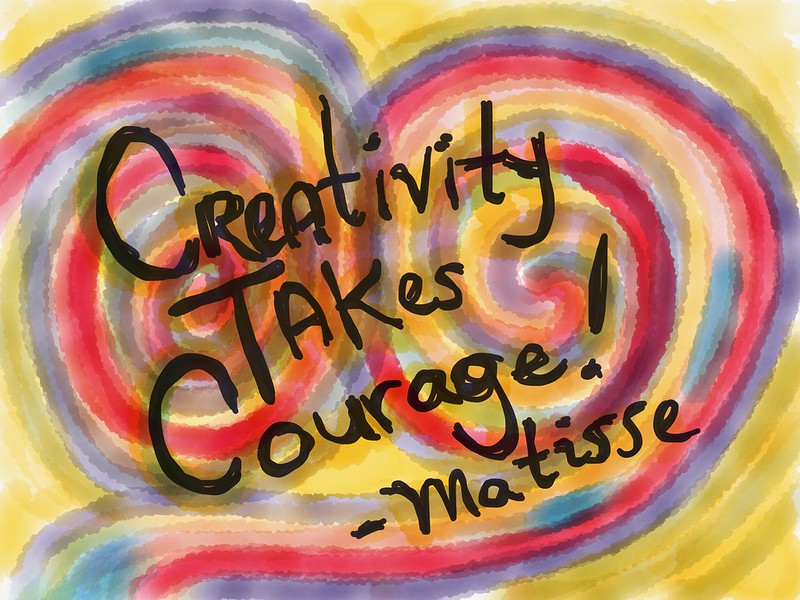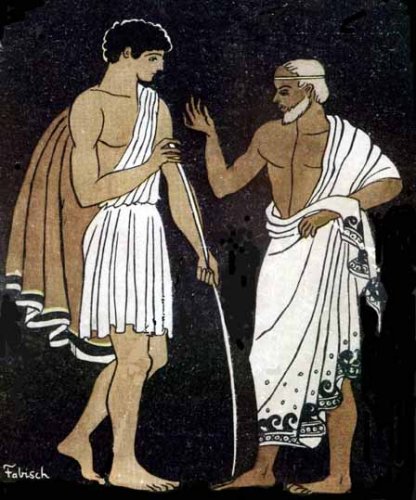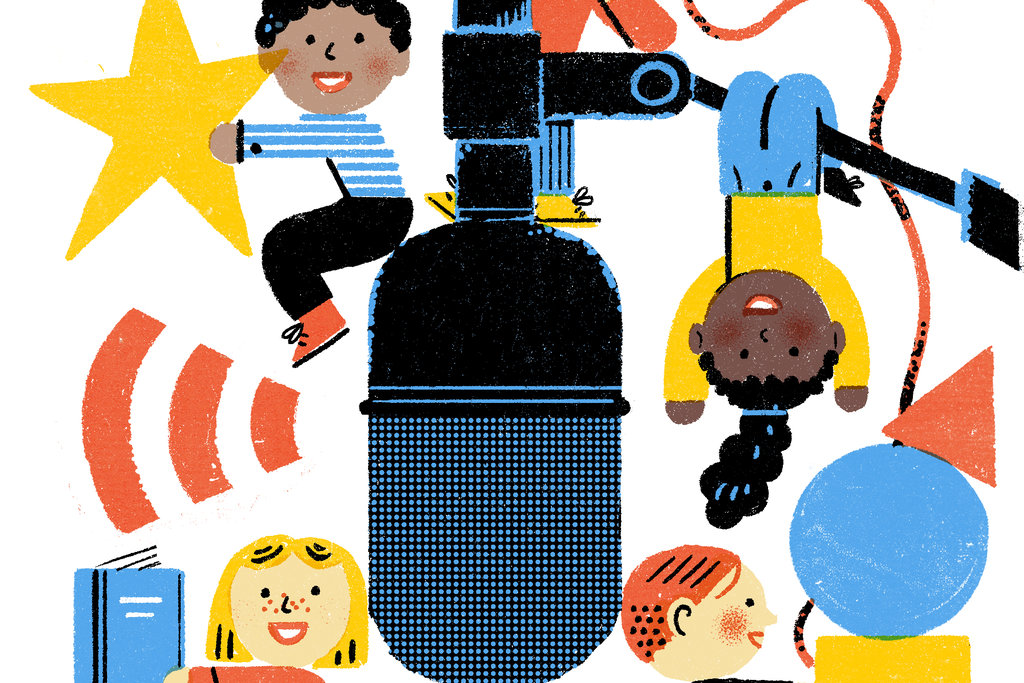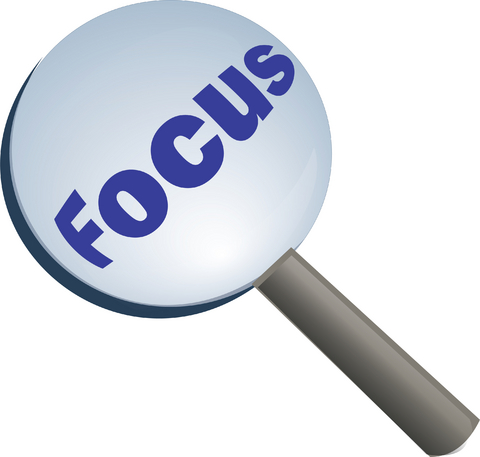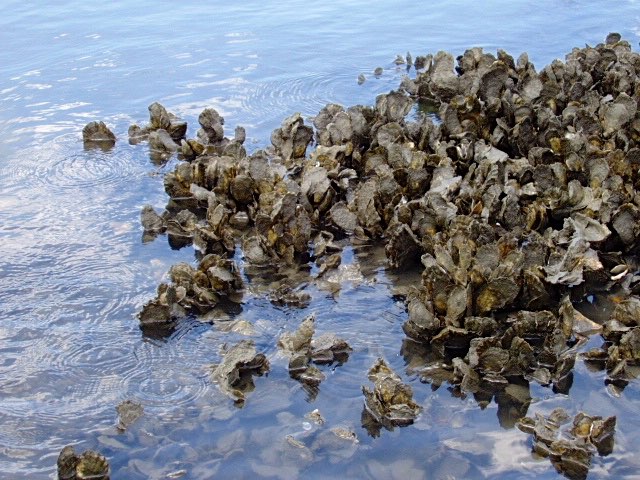The Final Class!!!
It’s been a tough term and I know everyone is glad it’s about over. But you’ve all done good work and really hung in there, so give yourselves some congratulations, get things finished, take a break… and get ready for the Spring!
Here’s the Farewell Graffiti Padlet wall if you’d like to leave something for us,
And here are some final reminders about the Final Portfolio and the Course Grade calculation:
What goes in the Final Portfolio folder. To make the folder, go to the main Drive, click on Final Portfolio folder, create a new folder with your name on it, and then put these things in it:
- Revision of the Unit 1 Education Narrative.
- Revision of your Unit 2 Reflective Annotated Bibliography.
- Final Reflection essay of 1000 words.
- Optional: Anything else you would like me to consider, like a blog post you really thought you did well, or some annotations from Perusall you thought were good and insightful. These things could help if you’re on the border between grades.
The Final Portfolio is due at the end of the day Monday, December 20.
The Final Course Grading looks like this (note that the Gradethat’s in OpenLab right now is subject to change once your revisions are done, so a low grade now can become a higher grade in two weeks. However, if you have a zero for any of the drafts, the Final Revision grade will NOT replace it — that’s in the syllabus, and it’s that way because it isn’t fair for someone who hasn’t done the work all term to turn in everything all at once at the end and get potentially as good a grade as people who did do the work.):
- Unit 1 – Education Narrative, revision: 10 points
- Unit 2 – Reflective Annotated Bibliography: 10 points
- Unit 3 – New Genre Project (including the Artist’s Statement): 10 points
- Participation (homework posts, Perusall annotations, in-class involvement in the activities we did, attendance. These can NOT be made up.): 20 points
- Final Portfolio broken down into:
- Final Revisions on the first three things on this list: 20 points
- Final Reflection: 30 points
And that, as we say in the film business, is a wrap! Have a wonderful, safe holiday season!
Post class 12/13
Keep going on your Final Portfolios. And if you haven’t had a conference with me, and you want one (or you want another one), sign up on the Conference Times Google Doc in our Google Drive.
Post class 12/8
We’re down to the last week (almost)! One-on-one conferences about revisions, and SFDs of the Final Reflection are what we have going.
Be sure to take a look at the Post class 12/6 Announcement below to remind you about what you need to do.
Homework for Monday 12/13: Write a SFD of your Final Reflection and upload it/post it in the Google Drive folder marked “Final Reflection SFDs.”
Post class 12/6
For these last two weeks, we’re working on your Final Revisions and Final Reflection for the Final Portfolio. The overall assignment is here (in the Unit Work section).
Here are the two Padlets that can help you with your Final Reflection:
- Padlet from the beginning of the term where you wrote A Letter To Your Future Self.
- Padlet where you talked about problems writing Unit 1.
Homework for Wednesday (there are two parts)
- Read and annotate on Perusall: “Thinking about Revision.” This is an piece by Donald Murray. Be sure to note favorite quotes because we’ll be using them in class on Wednesday.
- Write an Open Lab post of 250 words about what you need to do to create your Final Portfolio. You can base this on the freewrite we did in class, but go farther — review your work from this term and make notes on what you want to do to revise things, then talk briefly about what you need to do to revise things. Category: Final Revision ideas
FYI: On Wednesday, I’ll start setting up one-on-one conference times with people who want them. We’ll do them in class while everyone else is working on their Final Reflection and/or Final Revisions.
Also next week, for Monday you’ll be writing and posting to the Google Drive a rough draft (SFD) of your Final Reflection for Comments.
Post class 12/1
Those were so wonderful! Great work. I hope doing these projects gives you some insight into how to do things for future classes or jobs — understanding your audience, figuring out the best way to get information to them, playing with different tools. I’m so impressed!
Now, do final revisions on the project AND write your Artist’s Statement, and upload them into the Google Drive folders. And go out in the sunshine!
Post class 11/29
I’m so excited to see these projects! Lots of creativity.
For Wednesday: we’ll be ‘presenting’ the projects. If you can get it posted in the Google Drive folder labeled Unit 3 – New Genre Project, that would be great. If you’re having trouble, don’t worry. You can show us in class, and then we’ll figure out how to upload it. hint: screenshots and pdfs are your friend for these things.
And for the podcasts, remember that you need to upload your mp3 file to the drive before you can insert it into a Google slide alongside your cover.
Text me on Slack or email me if you’re having problems with anything.
Reminder: The brief schedule for the rest of the term is below in the Post class 11/22 message.
Post class 11/22
Keep putting up progress reports on the Padlet so I can see what you’re doing. So far, these look great!
Remember: no class on Wednesday
Brief schedule for the remainder of the term:
- Mon 11/22: Artist’s Statements. Group workshops. Homework for 11/29: Good almost-final draft of the project.
- Wed 11/24: no class
- Mon 11/29: Final workshops. Artist’s Statements revisited.
- Wed 12/1: Present the projects and celebrate! Homework for 12/6: Final draft of Project AND Final Draft of Artist’s Statement in Google Drive folders.
- Mon 12/6: Discuss Final Portfolios. Doing revisions and writing the Final Reflection. Homework for 12/8: Write an Open Lab post of 250 words about what you need to do to create your Final Portfolio. To do this, you need to review your work from this term and make notes on what you want to do to revise things. Then briefly think through what you need to do to revise things. Category: Final Revision ideas
- Wed 12/8: Writing the Final Reflection. Conferences. Homework for 12/13: SFD Draft of Final Reflection in Google Drive folder.
- Mon 12/13: Comments on SFDs. Questions and one-on-one conferences.
- Wed 12/15: Final class day. Farewell graffiti padlet.
- Monday 12/20 end of day: FINAL PORTFOLIO DUE in Google Drive
If you have questions, please message me on Slack or send me an email.
Post class 11/15
Here’s the information about the Artist’s Statement. We’ll start working with it on Monday 11/22, but feel free to take another look before we get there.
Homework for 11/22
ON THE PADLET post evidence of progress on your project, whatever you want that evidence to be! Your Unit will be due on (Wed Dec 1) so today, just post something you’re working on– a picture of your comic, a page of what you’ve been writing, a minute of your video…
Post class 11/15
We’re obviously deep into doing the Unit 3 projects. So just keep working on it because you’ll be meeting with your work group on Wednesday.
But before we get too far, do this for homework:
Homework for Wednesday 11/17
WRITE and post to OpenLab: Finish up the freewrite we began in class. Here are the questions again:
- How much did you know about the topic before you started?
- How did this compare with doing research the way you did it in the past?
- What did you learn about doing research this way?
- What did you learn about yourself as a researcher?
- What did you learn about analyzing something rhetorically (audience, author, purpose, context, text components, etc.)?
- Why is, or isn’t, rhetorical analysis something you think you could use in the future, either in school or for work or just for everyday life?
- What problems did you run into doing this annotated bibliography?
- How did you solve those problems?
- How do you feel about what you ended up with?
- Category: Unit 2 Reflection
Post class 11/10
Workgroups — you’ll be helping each other over the next couple of weeks in whatever you can, whether it’s help with tools or just giving feedback on how/what everybody is doing. Here’s the Padlet we created today, and here are the groups:
- Magazine article: Cynthia, Kervens, Jazmin, Zain
- Podcast: Daniel, Eliana, Kaylen
- Social media: Hashim, Kasem, Kevin, Shuhana
- Graphics: Edwin, Marielly, Shahat
- Individual: Krzysztof (animated video), Ryan (short story)
Here are some links to tools:
Homework for Monday Dec 15
WRITE a post for OpenLab: Do an analysis of a mentor text in the genre you want to use for your project using these questions. Find an article or a podcast or whatever, and then analyze it for structure (NOT for content) to give you an idea how to put your project together. We call them “mentor” because they’re intended to teach. Btw, Mentor is the name of the teacher that Achilles left in charge of his son Telemachus when he went off to fight in the Trojan War, and in the hero’s journey story, the mentor is the main character’s teacher. So there! Anyway, here are the questions to answer in your post.
- What tone/type of language does this example use?
- How does this source use research? Do they quote from outside sources, use a lot of statistics, have experts comment, etc.?
- What can you tell us about this source visually (imagery, color, layout) or auditorily (use of music, background sounds, voice-over).
- How long is it (words, pages, minutes)?
- Who do you think is the audience? What makes you think that (think about language, music, visuals, content, etc)?
- What aspects would you like to emulate in your own project? How might you do that?
- What aspects would you like to avoid in your own project? How will you do that?
- CATEGORY: Mentor Text
Post class 11/8
Now it’s time for some fun! You get to be creative as you get something you think is important to a specific audience. Here are some ideas for genres:
- Podcast
- Video essay
- TikTok
- Twitter thread/tweetstorm
- Short fiction story
- Poetry
- Songs and/or song lyrics
- Instagram story/page
- Graphic novel or comic
- Targeted op-ed for a news website (NYTimes or Washington Post)
- Article for a targeted magazine (like PC Gamer or National Geographic or Sports Illustrated)
- Speech
- Animated video
- or anything else you can think of and clear with me
Here is a list of links to various examples of things:
Homework for Wednesday 11/10
POST on OpenLab: You will need to write a proposal of at least 200 words outlining what you plan to do for Unit 3. Post to website. This proposal should tell us:
- A 1-2 sentence statement of what you want to teach your audience (the most important thing you learned in Unit 2).
- The audience you are trying to reach. Get as specific as you can here. Everyone is not an audience!
- The genre you are planning to write in and why you chose it.
- A plan — how do you intend to get started?
- Anything you might be worried about. What are your concerns about finishing this project?
- CATEGORY: Project Proposal
Post class 11/3
If anyone wants to meet with me one-on-one for a longer time, please email me or send me a text on Slack, and we’ll set it up.
Homework for Monday 11/8
ADD in the Google Drive Folder: Just make sure you have a good draft of your RAB. If you want to leave me a message about it, add it to the very end and label it Note to Prof Blain. That will actually help me when I take a look to give you feedback.
Post class 11/1
Nice work today. I know it was a little hard and a little confusing, but you hung in there and left some good notes.
FYI, here’s a shortened version of the Content Checklist:
Introduction:
- What’s the topic?
- Why did they choose it?
- What do they hope to find out?
Source Analysis (should be three):
- Bibliographic information and NOT just the url.
- Summary of main points – No personal opinions from the student writer
- Two or three quotes
- Rhetorical Analysis – No personal opinions from the student writer
- The author/publication
- The audience
- The context – this is NOT the purpose of the piece but the larger context it’s been created in (global warming NOT teaching people about sea animals)
- The purpose
- Discussion of language – tone, appeals (logos, ethos, pathos)
- If there are visuals, how they are used either alone or together with text
Reflection/Conclusion:
- Personal opinions about the sources.
- What they learned/what surprised them.
- Who else might be interested in what they found.
Format
Heads up:
Wednesday’s class is going to be a Workshop session. That mostly means I’ll be talking to anybody who has questions or needs help since your Draft is due on in the Google Drive folder labeled Unit 2 on Monday 11/8.
Homework for Wednesday
WRITE a post on OpenLab: Two parts to this short (200 word) post.
- Talk about your plan to complete Reflective Annotated Bibliography. What did you learn after the Content Check activity we did in class? Do you need to do a lot of revising? Of what sections? Do you still need to add things like more sources? The reflection/conclusion? In other words, what do you have left to do?
- Talk about doing the Content Check activity. What did you learn? Was it easier to leave feedback when the writer was anonymous? Did working with the same people when you went back to look at your own RABs make you feel more comfortable? How was it overall?
- Category: Content Check Activity
Post class 10/27
Finally got Zoom fixed! One of the settings had gone haywire, although I still don’t know why. But it took me 10 minutes to get it figured out, so I’m glad y’all talked me into waiting until Monday.
So… that said…
Here’s the homework for Monday 11/1
WRITE and upload to the Google Drive a more-or-less complete draft of the entire Unit 2 Annotated Bibliography. It doesn’t have to be perfect because we’ll be doing the content check in class to give you some feedback. But do get something posted!!!
And feel free to check out what other people are doing in the Folder. That will give you some ideas, too.
Have a great weekend!
Post class 10/25
For Wednesday, add your Reflection/Conclusion to your Google Doc. We’ll be workshopping the whole assignment, helping each other make sure we’ve hit all the required elements. So get at least something posted by class time.
Here’s how to write your Reflection/Conclusion. Write at least 400 words. Now it’s your turn to react to what the authors of your sources have said. Agree, disagree, how, why, what you think they don’t understand, what you got from that surprised you. Up to now it’s been a fairly objective analysis, but no longer! Of course, if you go off on someone — or even if you’re agreeing and/or praising them — say why you react that way. Quote from the source. Bring in your own personal experiences with the subject. Even quote someone else. Go for it.
Feel free to write more than one paragraph if you want (and 400 words is really a minimum, so if you get on a roll, just keep going). That means don’t just answer these questions in order — use them to think about how you reacted to the research you did. You may talk about each source individually if you want, or talk about them as a whole, or pick one to focus on while not forgetting about the others. Again, the organization of this Reflection is up to you. But here are the things you definitely need to consider:
- Briefly summarize what you learned from doing this research. What surprised you?
- What do you think about these ideas (time for your own ideas!)? Do you think the authors supported their ideas well and made their point, or not, and why (Avoid simply agreeing or disagreeing with the author; explain your full reaction. Quote particular sentences to which you are responding.)?
- Which genre(s) worked best to answer your questions? Why?
- If you could say something to the author(s), what would you say?
- What questions do you still have? What don’t you understand? What other information do you need (or did) to look up to better understand the source?
- How did your thinking on the question/topic deepen or change?
- Talk about why you think what you learned is important, and who you think should hear about it (this last part is a sneaky way of setting up Unit 3!).
Post class 10/20
FYI here’s the link to the Colbert Wheat Thins piece. The other stuff about using and embedding quotes (including the Quote Sandwich) is in the Class Resources area.
Homework for Monday 10/25
ADD to the Google Doc/Word doc in the Reflective Annotated Bibliography folder: Second and Third Source Analysis.
Post class 10/18
I hope everybody got something from the discussion about visual rhetoric and analyzing static and moving images. Here are a few links from the class:
- How to do visual rhetorical analysis use the table of contents to find it
- Pixar’s “for the birds”
- the Vox feature on oysters
Homework for Wednesday:
ADD to the Google Doc/Word doc in the Reflective Annotated Bibliography folder: First Source Analysis. Remember that you can use anything: video, written text, fiction, poetry, film, personal essay, newspaper article, blog post, web news source/article or video… To analyze each one, be sure to use what we’ve done with the Baldwin speech and the Vox video. Those activities and worksheet should help you with the rhetorical analysis part. Here’s what it looks like:
- Bibliographic entry. Use something like easybib.com or the Purdue OWL (go to Research & Citation –> MLA) to help you get the formatting correct.
- 1-paragraph Summary of the source’s content. Give the main idea and main supporting points. Don’t comment on it in terms of giving your opinion — this is meant to be subjective and like giving a report.
- 2-3 Key Quotes. These may be things you can use in Unit 3 or even things you can use in your Reflection (which is the final part of the Reflective Annotated Bibliography).
- 1-2 paragraph Rhetorical Analysis: Again, lean on the worksheets and analysis things we did in class. Textual analysis for the Baldwin speech, and additional visual analysis for videos and other images. Focus on author, audience, purpose, context, style and tone, images and sound, use of appeals (logos, pathos, ethos). NOTE: This section is not about your own opinions of the ideas in the text; you get to do that in the next section. This section should be as objective and non-judgmental as you can make it. You’ll get to make your opinions known in the Reflection section that makes up the very end of the Reflective Annotated Bibliography.
Post class 10/13
I don’t know about you all, but I had fun today and actually learned a lot. Here’s the video clip I mentioned about James Baldwin. It’s only three minutes — you should absolutely watch it!
A blank version of the rhetorical/genre analysis worksheet is below. Remember: you do NOT have to fill it out! It’s to help you analyze your sources when we get there.
For Homework:
I changed it a little based on what we did today. So there are two (2) parts with different due dates:
FIRST — WRITE on this Padlet: Create a new post. Put your name in the title, then put your topic and your specific research question. Remember: “global warming” is a topic; “how are rising seas caused by global warming going to affect NYC?” is a specific research question. If I think you’re going to run into problems (or your question is still too broad), I’ll let you know on the Padlet and also via Slack.
- Due Friday, Oct 15, end of day
SECOND — WRITE and upload the Introduction to the Google Drive folder marked Unit 2 – Reflective Annotated Bibliography. You can do this on a Word doc and upload it, or you can create a new Google Doc and write it/paste it there. The idea is to start/have a document you’ll be able to add to (and that I can comment on) as you build your Reflective Annotated Bibliography.
To write your Introduction, write 1-2 paragraphs that answer these questions. Do NOT just copy the questions and answer them. Create something that looks like an article or an essay or even a story. The example essay is below, just to see how it’s laid ou t. Spend some time on this– because this will serve as the first draft of the Introduction for your annotated bibliography!
- What is your basic research question? This should not be something that has a yes or no answer. It should be something that has depth, twists and turns, different kinds of answers, dead-ends and re-thinking. Go back to your 5Ws and 1H to find the question that will drive all of your research. You might have a topic, even a very broad one, but what is it you’re trying to find out? For example, it’s not “what is global warming?” — that’s your topic; question might be “how will global warming affect urban farmers?” Another example, it’s not “why are video games not bad?” — again, that’s your topic; a question could be “how do I convince my parents this is a real profession?”
- Why are you interested in this question? (Feel free to talk about your own personal experience with the topic, or to tell an anecdote about your experience with this subject matter.)
- What do you expect to find in your research? (Why do you expect to find this?)
- What will you do if you find information that goes completely against what you had expected to find? (Will you throw it out? Will you write about it anyway? Will you challenge your own assumptions?)
And remember… there’s an example of this assignment at the very bottom of the Lectures & Schedule page that you can use to help you create your Introduction in terms of format.
- Due Monday, Oct 18
- (If you get to it) READ & Annotate in Perusall: The assignment labeled “Integrating Quotes.”
MAJOR CHANGE IN HOMEWORK FOR 10/13
I made a mistake. Sorry. Forget the Baldwin post here on OpenLab. I set it up as a response at the end of the Baldwin reading on Perusall, so do the Perusall response instead of the OpenLab Post. My apologies!!!
By the way, there are already some great responses on Perusall…
Post Class 10/6
Here’s the Padlet of ideas. Take a look — somebody may have an idea you hadn’t thought about. If you’re stuck, here are the prompts I gave to help you generate some more ideas. And remember — it can be serious or silly, just as long as you’re truly curious about it:
- What makes me really angry.
- The last couple of things I did serious Googling about.
- What makes my heart sing.
- What I’m obsessed with.
- What I’ve always been curious about but never took the time to investigate.
- What’s going on in the world that I’d like to understand better
Here’s the link to the RBG video. And here’s the KWL+ process:
And here’s the Homework for next Wednesday, Oct 11 (no class on Monday).
READ AND ANNOTATE on Perusall: “A Talk to Teachers” by James Baldwin. There’s an Assignment response at the very end (it replaces the OpenLab post I mentioned last week; don’t worry if you’ve already done it – no harm no foul!).
WRITE a post on OpenLab: Go back to the ideas you jotted down on the Padlet and pick one to work on OR if you’ve thought of something new after reading the Baldwin speech (or having just had a couple of days to think about it), use that one instead. Pick one and ask a series of Journalist’s Questions about it: who, what, when, where, why, how. Generate as many questions as you can think of. Then do the same thing with a second idea. Once you get those two sets of questions done, create a Post and tell us:
- Your first idea. List all those questions.
- Your second idea. List all those questions.
- Two or three sentences about which one you’re leaning toward getting more curious about and doing some research on and why you’re most interested in that one. OR if you don’t like either of those first to, do a third idea-question set!
- The point is to let your brain go crazy! You’re not locked into anything yet — just getting closer.
- CATEGORY: Questions
Post Class 10/4
Again… the grades are in the GradeBook, drafts are out of 10 points, and final revisions aren’t due until the end of the term. Lots of time to meet with me or have a Slack conversation or meet after class. I’ve also put a copy of “The Tapper” on the Class Resources page to show you how to do a reverse outline.
And now we’re on to Unit 2, what I call the Curiosity Unit. All about asking questions to learn about something we’re curious about. Not to prove a point, not to make an argument, but just to inform.
Here’s the Homework for Wednesday, 10/6.
READ & Annotate in Perusall: The Assignment labeled “Curiosity & Research.” It contains two pieces, so you’ll need to be sure to read/annotate both:
- Wierszewski, “Research Starts with a Thesis Statement” from Bad Ideas about Writing
- The Guardian, “Schools are Killing Curiosity”
WRITE a post for OpenLab: In at least 300 words, address the following:
- What is something you were interested in when you were a kid? Are you still interested in that topic? How did asking questions help you learn more about that topic?
- If so, how has your curiosity changed and grown over the years? And what role did the educational system play in your curiosity (good or bad)?
- If you are not interested in this topic anymore, what do you think happened to that interest? Do you remember the specific time you LOST interest? What did you become interested in instead (and why)?
- CATEGORY: Curiosity
Post Class 9/29
A couple of things:
Here’s the Padlet. Go take a look at what people said about the problems they had writing this Education Narrative. It’s always good to know we’re not the only one having these kinds of issues!
Remember that Unit 1 is over on Monday (meaning I won’t look at any Perusall comments or OpenLab posts for this unit after Sunday night). So be sure you post your SFDs in the Unit 1 folder in the Google Drive by Sunday night..
Here’s the Homework:
note: I’ll leave my Comments in the margins of your draft and also put a longer note at the very bottom. You can wait to write your Revision Memo until I’ve done that.
WRITE and add to the bottom of your Education Narrative Draft: Write a note to yourself (and to me) labelled “Revision Memo” that includes these things.
- Summary of what people responded to, the good and the bad!
- The recurring comments you got, and how you think you can address these in general.
- The comments you disagree with (or that people disagreed with each other about), and whether you think there’s any merit to them. If you do, talk about how you think you can address them.
- Brief thoughts about what you want to do in your revision (remember: the final revision isn’t due until the Final Portfolio at the end of the term).
BE SURE you’ve commented on three other people’s drafts. I’ll be keeping track as part of your Unit Participation Grade, so be thoughtful about it. Positive feedback (plus helpful notes).
And as always, if you have questions or need help, send me a text on Slack.
Post Class 9/27
Good work this morning! I’m seriously going to try out some of those foods. Here’s the Padlet so you can go see what everyone posted (and get hungry!)
Here’s the Homework for Wednesday:
WRITE in the Google Drive folder: Use the Comment feature to leave feedback on two more Education Narratives. Be sure to read their Reviewers Memo before you read their essay, then add Comments on the side — you can use these prompts to get you started, but write whatever you want, remembering to be positive and helpful!
- I liked (….) because…
- I got this from reading your work.
- I found this part interesting because…
- I got confused here because…
- I wanted to know more (….) about because…
At the very end (below their Reviewer’s Memo), leave the author a brief note that summarizes what you wrote in the Comments on the side. It doesn’t have to be long; just something to let them know your overall reaction and maybe ideas about revising if you have any (that’s optional). And don’t be formal about it! Talk to them one person to another, like you’re texting or chatting (but with cleaner language).
Post Class 9/22
First I have to say I love the paragraphs that have been posted. Some really interesting stories that could turn into great essays.
Second, don’t worry about length on these Education Narratives. Just write about yourself and what you’re thinking, and we’ll see where we are next week.
Third, there were some good suggestions for how to start/how to get organized that I thought I’d put here:
- Cynthia: I write everything down first, then set them up in order later.
- Kaylen: I just put down what comes to mind.
- Shuhana: I write my ideas on post-its and then put it all together when I think it’s ready to start.
- Kervens: I make mental bullet points of what I’m trying to say.
- Kaylen: Thinking about the tone that I want my writing to be in also helps.
Good stuff to go along with the things on the Getting Started slideshow that’s in the Class Resources.
Fourth, here’s the whiteboard where I put down two different ways to structure these education narratives: 1) framed by ideas and supported by personal stories, and 2) framed by a specific incident and supported by the chronology of how the person got there. Hope it helps!

Finally, here’s the Homework for next Monday. Don’t struggle with the Reviewer’s Memo: it’s just meant to give you a chance to say what you wanted to do with your essay, what you think is working or not, and what feedback you’d like from other people. Add it to the bottom of your draft when you’re finished with the draft (which, by the way, only needs to be 800 words — we’ll get to 1000 by the end of the term).
And, as always, ask me questions on Slack!
WRITE and add to the end of your SFD: Reviewer’s Memo. This short Reviewer’s Memo (100-200 words) is something you add at the very bottom of your draft. It’s written to your classmates (and me), and addresses these three things:
- This is what I intended to do: Here’s why I wrote it. What I hoped it would do. What I want people to take away from the piece.
- This is how I feel about the project so far: how I think it’s going, what problems I’m having, what I think is working, and what I think I need help with, what I’m proud of, etc.
- This is what I really could use feedback about: what do you think is working? What is confusing? Does each paragraph address a single idea, or does it wander all over the place? Should/could I mention or use something from the readings? If this were your essay, what would you do next?
WRITE and upload to the Google Drive folder labeled Education Narrative: A Less Shitty First Draft of UNIT ONE (including your Reviewers Memo at the end). At least 800 words. Pay attention to your paragraphs (more than one, but then whatever — even one sentence can be a great paragraph!).
Post Class 9/20
I hope everybody enjoyed the writing activity we did. It’s really a great way to create scenes whether for film or book or video game narrative.
We’re getting ready to write the Education Narrative, and this is good practice. Maybe you even wrote something you can use!
Here’s the Homework for Wednesday, 9/22:
WRITE a post on OpenLab: Write at least two distinct paragraphs to use in your Education Narrative. They can describe one specific incident that changed your views on education using Concrete, Significant detail. Or they can be your first take on the introduction plus one paragraph describing an incident. It can be what you came up with in class or even something else that occurs to you. Doesn’t matter. Feel free to use/review what we talked about for PIE paragraphs (that slide show is on the Class Resources page under Help & Tutorials).
- Category: Paragraphs
READ and annotate on Perusall: “SFD” by Anne Lamott. You don’t need to write anything on Open Lab because we’ll be using it in class on Wednesday.
Post Class 9/13
Whee!!!! That was a fast class — great work on those scavenger hunts. We’ll come back to them next week, mostly because we ran out of time and I think it would be great to take another look at the last couple especially. If you have time and think about it, take a look yourself — everybody obviously has access to these docs because they’re on the Google Drive (you get to it by clicking on Google Drive up on the top menu).
REMEMBER: No class on Wednesday!
Here’s the homework for next Monday, Sept 20:
READ & Annotate on Perusall: Olivarez, “Maybe I Could Save Myself by Writing” and his poem “Mexican American Disambiguation”
READ & Annotate on Perusall: Barry, “Tardy.”
WRITE on OpenLab: (250 Words) So far in this unit, we have read (and heard) three examples from the genre of the “education narrative.” Your first essay assignment in this class will be to write in this genre yourself. So in this discussion forum, I’d like us to have a conversation about what the features of this genre are. Please discuss some of the following:
- What, from what you’ve seen so far, are the “ingredients” (also known as “conventions”) of the education narrative genre?
- What do you think might be a place to get started with your own education narrative?
- What are your questions or concerns about writing an education narrative of your own?
- If you like, you can also feel free to share an educational experience you had and ask for feedback from your colleagues (and me) to see if we think that might be a solid place to begin writing.
- CATEGORY: Conventions
Post class 9/1
I hope everybody got some useful information about yourself and your own writing process when we did the Google Docs. I’m going to put them all into a single folder labeled “Writing Is…” in case you want to look at them again.
Text me or email me with questions about the upcoming homework and/or the Unit 1 Assignment. These are always really interesting because you’re telling stories!
Have a great short break!
Homework for Sept 13 (don’t forget, no class 9/3-9/8)
READ and annotate on Perusall: “Thoughts after reading Ellen Carillo.”
READ and annotate on Perusall: Tan, “Mother Tongue.”
optional: annotate the Jamilla Lysicott spoken piece
POST in OpenLab: As a blog post (at least 300 words) in which you write about these two things:
- How do you feel about what Carillo is saying? Did you ever get the feeling when you were in school that you were only allowed to accept what someone wrote? That you couldn’t have your own response to it? How did/does that make you feel? In addition, have you ever thought about the difference between “knowledge” and “understanding”? Why would that be important in today’s world?
- Now that you’ve listened to/read Lysicott and Tan, write about your own experience with various “Englishes.” How has your experience been similar to Lysicott and/or Tan? Please be specific and use at least one quote from Tan or Lysicott in this part of your response.
- CATEGORY: Englishes
Post class 8/30
Ya’ll did a LOT today! Commenting on Introductions, playing with three types of text on Perusall, playing with Padlet. Deep breath…
Here’s the homework for Wednesday (I’ll also copy this and put it on Slack in the #from-prof-blain channel):
READ and annotate on Perusall: “How to Read Like a Writer” by Mike Bunn. Annotate the heck out of this thing! Do exactly to Bunn’s piece what he’s asking you to do: question why he wrote something a certain way, comment on whether you think it’s effective or not, respond to his questions. If someone has already highlighted a sentence, just click on the highlight and add your own comments — make it a conversation!
WRITE and Post on OpenLab: Follow up on your annotating by writing a brief post that discusses the following questions.
- Mike Bunn writes, “You are already an author.” He’s talking to you. What do you think he means by this? What are some of the things you write already? (Yes, we talked about this a little in class, but now’s the time for you to talk about it from your own life. And by the way “Nothing” is not an acceptable answer.) Think of all the ways you already use words in your everyday life. That’s authorship! How will that existing expertise help you in your college reading and writing career?
- Was there anything you noticed in Bunn’s article that yo u would like to try to do in your own writing? What, in particular? Please be specific!
- How did you feel reading and annotating like this? I know it seems time-consuming, but what did you learn about reading and writing this way?
- CATEGORY: Bunn
If you have questions about anything, email me or text me on Slack (feel free to DM if you want, or if it’s a general class question, you could just drop it into the # general-questions-comments channel.
Update 8/25
So nice to “see” everybody today! First days/weeks are always odd, but it was wonderful that you all showed up ready to work. And the Padlet is wonderful!
The Homework is below (same as it was before class) — take a look at the Syllabus in Perusall (annotate if you want to), and create a post for OpenLab that introduces you to us!
If you need help with any of it, check the Tutorials, Help & Resources -> Class Resources area or text me on Slack.
Welcome to class!
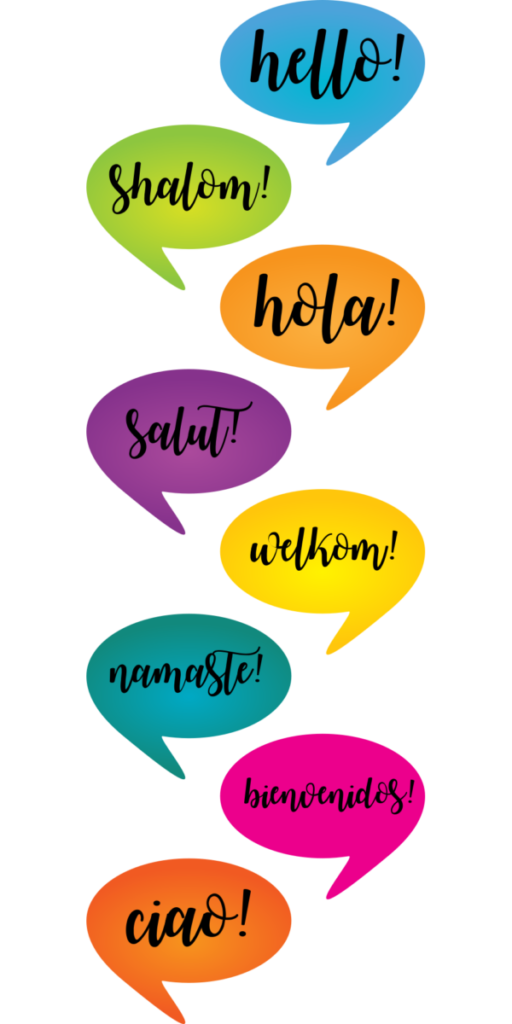
We are starting fast… Day One of the Fall Term. 10 am class. New platform to replace Blackboard. Whew!
Don’t worry. We’ll walk through this together and it’ll all be fine.
Here’s a quick welcome video for people looking at this site before the term starts. But I’ll save most of what I want to tell you for the first day — August 25, 10 am, on Zoom: https://us02web.zoom.us/j/81661822445?pwd=c252enRGWHVHVVY1dlAzMGVGdU80dz09
There’s actually some homework for the first week — August 25 – August 29 (a post, joining Slack and Perusall). So here’s the schedule of what we’ll be talking about AND the two assignments:
Week 1 (August 25-29)
Wed Aug 25
Intro to class. Walk around the site. How to post in OpenLab. Housekeeping: Slack, Perusall.
- Slack: Here’s the invitation again. So join and say hello in the #general-questions-and-comments channel.
- Perusall: You can wait until we meet the first time to join, but if you’d like to get a head start, go to perusall.com, register using any email and password you want (doesn’t have to be CityTech), check your own email. When you come back to Perusall, click on I am a student to join, and enter this code: BLAIN-DDAEP. Then you can go to the course and take a look around. (There’s also a video tutorial that the English Department made for you showing how to sign up and use Perusall, and why it’s important. The video is on the Class Resources page under Tutorials, Help & Resources.)
HW for Aug 30:
READ on Perusall: Assignment labeled: Syllabus. Don’t do anything with it (no need to annotate yet!), but think about what questions you have as you read it.
READ: these two short “Tips” pieces
- “Tips for Online Learning Success” https://www.nhcc.edu/student-resources/online-learning-d2l/tips-for-online-learning-success
POST on OpenLab: an introduction to you – with image. Create a new post. Here’s the link to the Class Resources page which has a how-to video (and a downloadable handout to go with it) for how to create a Post.
- Start with one word that describes how you’re feeling about this course as we get started (it could be the same one you mention in class). No need to explain that word, but you can if you want to.
- Next, talk about your worries, concerns, reactions to class and/or to the “Tips” readings… whatever you want. No censoring (except for keeping it more or less clean).
- If you think you might have some technical issues being fully online, add that here, too. It will help me and you both!
- Then tell us a little about yourself: major, where you came from if you’d like to tell us, that kind of thing.
- AND add an image that means something to you, and explain why you chose it (why it means something to you).
- AND and tell us a little about the story of your name. Who gave it to you? Is it a family name? Part of your culture? Do people treat you differently because of it? Are you proud of it or do you with it was something else?
Category: Introductions
- CHECK BACK IN and see what other people are saying, and reply to a couple of people. It’s nice to know we’re not alone!
Once you get all that done…
…you’re free to take a look at the materials for Unit 1 – Education Narrative, which we’ll go over on August 30 at our regular class session.
I’ll probably say this 4000 times this term, but if you have questions, send me a message on Slack (here’s the invitation again if you’ve lost it), or send me an email DBlain@citytech.cuny.edu.



